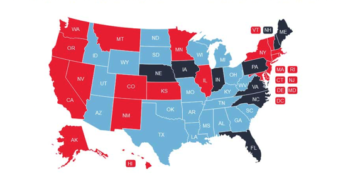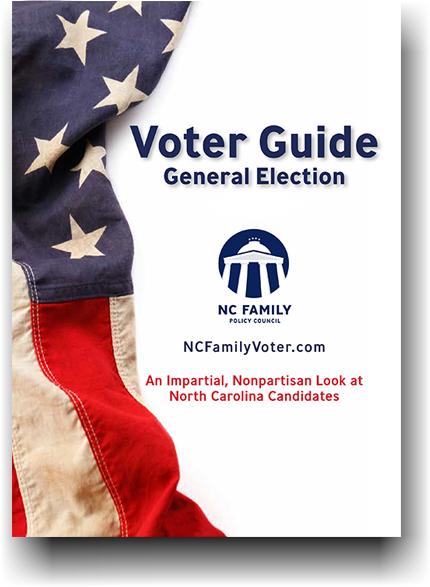
In my commentary “A Prayer for Life” in NC Family’s most recent edition of Family North Carolina magazine, I provided a preview of what the status of North Carolina’s law would look like if the U.S. Supreme Court overturned Roe v. Wade in its highly anticipated Dobbs v. Jackson Women’s Health Organization decision. This past Friday, June 24, the High Court answered this prayer—and nearly 50 years of additional prayers—when it issued its opinion in Dobbs and overruled the tragic 1973 Roe decision that legalized abortion and resulted in the deaths of over 62 million unborn children.
Now that the Supreme Court has acted and returned decisions regarding the legal status of life and abortion to the states, it is imperative that North Carolinians understand the status of abortion in North Carolina, and that we act to definitively preserve and protect human life at its earliest and most vulnerable stage.
 The Past: In 1973—just months after the Roe v. Wade decision was issued—North Carolina adopted a law banning abortion after 20 weeks of pregnancy. Unfortunately, exceptions in the law were so broad as to allow abortion in almost all circumstances. In 2015, the NC General Assembly passed legislation that significantly narrowed the exceptions in our 20-week ban to “medical emergencies.” Because this measure was effective in curtailing many abortions after 20 weeks, Planned Parenthood and other pro-abortion interests challenged the law in federal court. In March 2019, federal district court judge William L. Osteen, Jr. enjoined the 20-week ban, saying it contradicted the “viability” standard established by Roe v. Wade and Planned Parenthood v. Casey. Last year, Judge Osteen’s decision in Bryant v. Woodall was affirmed by the U.S. Court of Appeals for the Fourth Circuit. This essentially created a viability standard in North Carolina, allowing abortionists to subjectively determine whether a child—whose life they are being paid to terminate—would be able to survive independently outside the mother’s womb. It’s not hard to guess the outcome.
The Past: In 1973—just months after the Roe v. Wade decision was issued—North Carolina adopted a law banning abortion after 20 weeks of pregnancy. Unfortunately, exceptions in the law were so broad as to allow abortion in almost all circumstances. In 2015, the NC General Assembly passed legislation that significantly narrowed the exceptions in our 20-week ban to “medical emergencies.” Because this measure was effective in curtailing many abortions after 20 weeks, Planned Parenthood and other pro-abortion interests challenged the law in federal court. In March 2019, federal district court judge William L. Osteen, Jr. enjoined the 20-week ban, saying it contradicted the “viability” standard established by Roe v. Wade and Planned Parenthood v. Casey. Last year, Judge Osteen’s decision in Bryant v. Woodall was affirmed by the U.S. Court of Appeals for the Fourth Circuit. This essentially created a viability standard in North Carolina, allowing abortionists to subjectively determine whether a child—whose life they are being paid to terminate—would be able to survive independently outside the mother’s womb. It’s not hard to guess the outcome.
The Present: Now that the Supreme Court has overturned Roe and Casey, which served as the basis for enjoining North Carolina’s 20-week ban, the federal court should reverse its injunction and reinstate the ban. In fact, on Friday, the same day the Dobbs opinion was issued, N.C. Senate President Pro Tempore Phil Berger and Speaker of the N.C. House Tim Moore signed a joint letter calling on North Carolina Attorney General Josh Stein and the N.C. Department of Justice “to take all necessary legal action to lift the injunction currently barring the full enforcement of our State’s abortion restrictions….” The letter went on to say, “If we do not receive a response [by July 1, 2022], we stand ready to take the necessary steps to restore North Carolina’s abortion laws to where they were before Bryant struck them down.”
It is also important to note that North Carolina has a number of other important pro-life laws in place, including:

The Future: Although all of these laws are currently in effect, and even if the federal court does reinstate our 20-week ban, North Carolina is going to quickly fall behind most of our neighboring states in protecting unborn life. These other states have already passed legislation that will ban abortion at varying stages of early development now that Roe v. Wade is overturned. (Our friends at Family Policy Alliance have compiled an interactive map highlighting the status of abortion laws in states across the country.)
The tragedy is that if North Carolina fails to enact legislation similar to our neighboring states’, we will become a destination state for abortion.
While our legislative leaders have expressed their full commitment to protect unborn life, Democratic Governor Roy Cooper has shown that he will veto any pro-life bill the General Assembly passes. He has already vetoed a eugenic abortion ban that would prohibit abortions that are sought because of the race or sex of the unborn child or a diagnosis of Down syndrome. He has also vetoed the Born-Alive Abortion Survivors Protection Act that would require any healthcare provider who is present at the time a child is born alive after a failed abortion attempt to care for the child and transport it to a nearby hospital for treatment. And, unfortunately, due to the makeup of the General Assembly, the two-thirds vote necessary to override Governor Cooper’s veto is very difficult to find.
Both Senator Phil Berger and Speaker Tim Moore issued statements following the Dobbs decision. Speaker Moore stated, “Today’s decision from the United States Supreme Court is long overdue and a major win for protecting life! The end of Roe v. Wade rightfully returns authority back to the states to determine abortion law.”
He continued, “While I remain unequivocally pro-life, the short budget adjustment session does not afford us sufficient time to take up the issue. However, North Carolinians can rest assured that we are taking the necessary steps to ensure that current restrictions on the books will be enforced. North Carolinians can also expect pro-life protections to be a top priority of the legislature when we return to our normal legislative session in January.”
Clearly, the challenge facing North Carolina is that we must have a pro-life supermajority in both chambers of the General Assembly in order to override the Governor’s certain veto of a bill banning abortion once a heartbeat is detected—as numerous other neighboring states have done—or even sooner.
Without pro-life supermajorities in the State House and Senate following this fall’s General Election, North Carolina will face two more years (the remainder of Governor Cooper’s term), and possibly even longer, as a destination state for abortion in the Southeast. We simply cannot let this happen!

Accordingly, North Carolinians must demand that our state lawmakers support and defend life from the earliest stages of development, and we must elect pro-life supermajorities to the State Legislature this fall.
As we have done in every election since 2000, NC Family is producing a comprehensive, nonpartisan Voter Guide for this year’s General Election, and we are surveying all candidates for the State House and Senate to determine where they stand on the issue of life. (You can pre-order Voter Guides in bulk for distribution at your church, civic groups, and neighborhood by visiting NC Family’s Voter Guide Order Page. Voter Guides are provided free-of-charge and will be shipped in early October.)
For 50 years, we have been praying for this moment, and by God’s grace our prayers have been answered. Now, North Carolinians across our state must act to honor God, to preserve the sanctity of human life, and to protect the most vulnerable among us!